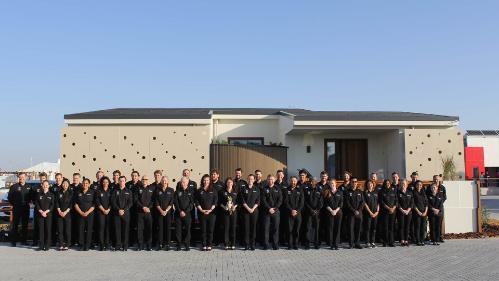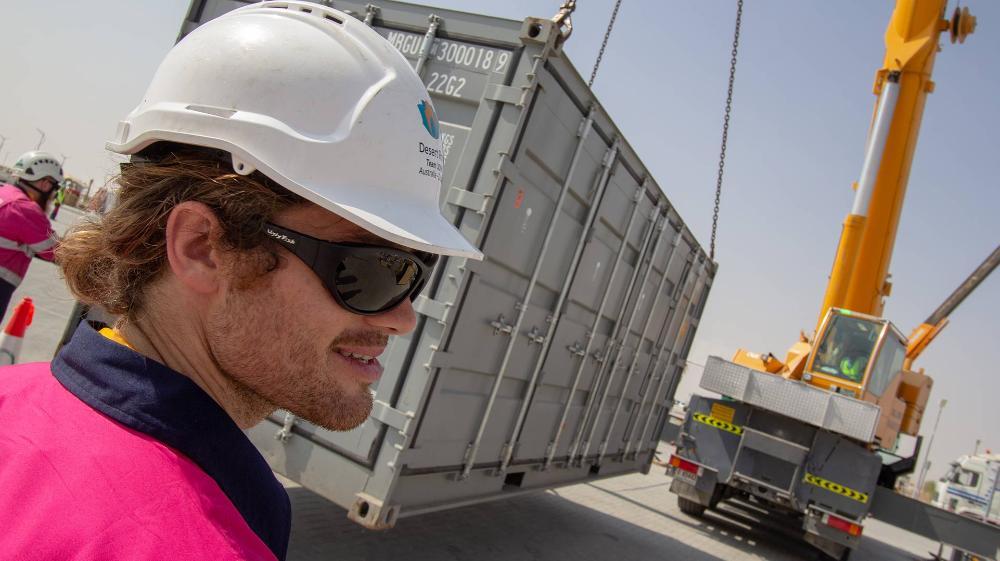October 29, 2019
UOW project a finalist in state’s premier sustainability awards
Desert Rose House a Green Globe Award finalist
A University of Wollongong (UOW) sustainable building project has been recognised alongside industry heavyweights, named as a finalist in the State Government’s top environmental awards.
The Desert Rose House is one of four finalists in the Green Globe Awards Built Environment Award category, which recognises the most sustainable built environment through design or management.
The Green Globe Award winners will be named on 27 November in Sydney.
The Desert Rose House is the country’s first net-zero energy home designed to meet the needs of ageing and dementia-affected Australians.
Incorporating groundbreaking technical and architectural innovations, it generates more electricity than it uses, minimises water consumption, and allows its occupants to live independently for as long as possible.
It has been named as a finalist alongside Lendlease’s Barangaroo South, which is Australia’s first carbon-neutral precinct, City of Sydney’s Green Square Town Centre which minimises car dependence, emissions and water consumption, Local Government Super which has achieved the nation’s first carbon-neutral property portfolio, and Wollongong City Council which has the oldest building in Australia with a six-star Green Star rating.
Lead academic on the project and Head of Civil, Mining and Environmental Engineering Professor Tim McCarthy was proud to see the Desert Rose mentioned among industry leaders.
“The fact that a student project is able to go head to head with projects worth hundreds of millions of dollars, such as Barangaroo South, is amazing,” Professor McCarthy said.
“Team UOW is dedicated to creating an innovative and sustainable future that celebrates life,” Project Manager Clayton McDowell said.
“To have our students, researchers and collaborators recognised for their outstanding contribution to this mission is exceptional.”

More than 200 student volunteers from the University and TAFE NSW participated in the design and construction of Desert Rose House.
The house was constructed in a TAFE workshop, disassembled, shipped to Dubai and then finally assembled there in 2018 for the Solar Decathlon Middle East Competition, where it won second prize.
In September 2019, the team won the National Australian Institute of Building Professional Excellence Awards for Residential Construction under $1 million.
Desert Rose House is in the running for a suite of awards at present, finalists in two categories of the Green Gown Awards, finalists in the Safework NSW Awards and finalists in two categories of the Australian Institute of Refrigeration, Air Conditioning and Heating AIRAH Awards.
The design of the house is human-centred. The structural wall frames have been designed with additional framework placed at a height where handrails can be fixed when needed. The layout encourages visibility throughout the house, assisting occupants with cognitive impairment to navigate their home. For instance, people living with dementia are up to eight times more likely to use the toilet if they can see it from their bed. To accommodate a person living with reduced mobility, all the doorways, hallways, and rooms are sized to allow for the use of a wheelchair or walking frame.
The house is soon to be reassembled at Innovation Campus.
